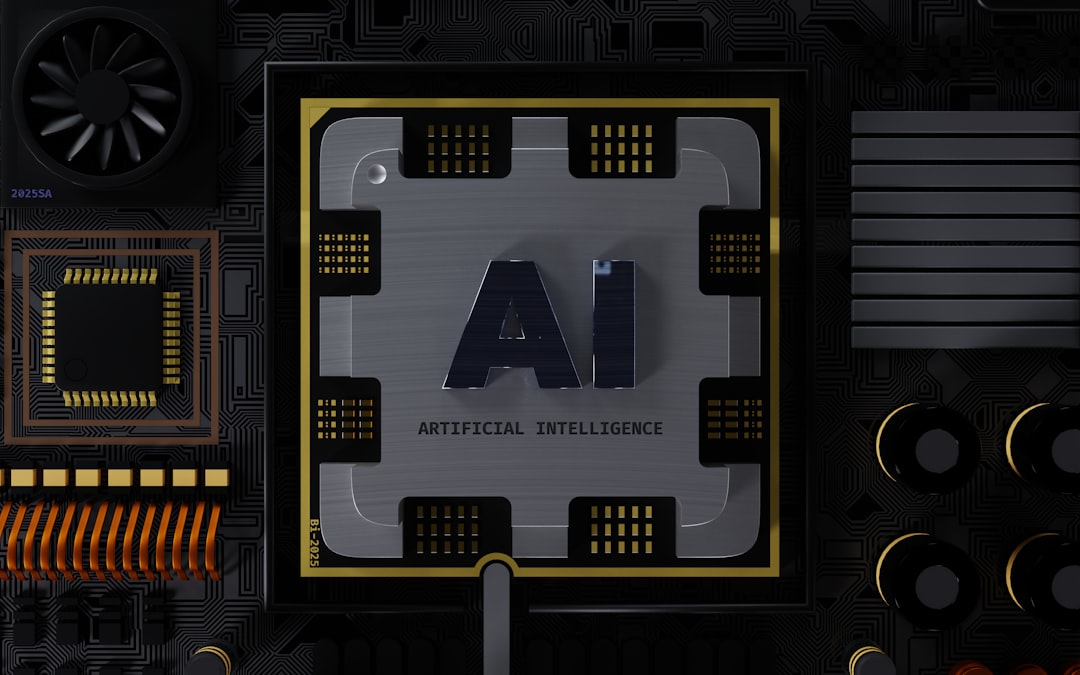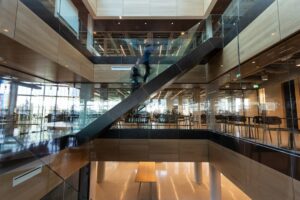AI Solutions for Space Missions: Engineering Services and Products

Explore how AI Solutions are enhancing engineering services and products for space mission planning, design, and operations across civil, commercial, and defense sectors.
Introduction
Artificial Intelligence (AI) Solutions are revolutionizing the landscape of space missions by providing advanced engineering services and innovative products. From planning and design to operational execution, AI-driven technologies enhance efficiency, accuracy, and adaptability. This transformation spans across civil, commercial, and defense sectors, enabling more sophisticated and reliable space missions.
Enhancing Mission Planning with AI Solutions
AI Solutions play a pivotal role in the intricate task of space mission planning. By leveraging machine learning algorithms and predictive analytics, engineers can optimize mission trajectories, reduce fuel consumption, and anticipate potential challenges. Tools like MultiQoS’s AI-driven platforms facilitate the simulation of various mission scenarios, ensuring robust and feasible mission designs.
Intelligent Trajectory Optimization
AI algorithms analyze vast datasets to determine the most efficient paths for spacecraft. This not only minimizes resource usage but also enhances mission safety. For instance, FreeFlyer Astrodynamics Software utilizes AI to compute precise flight dynamics for missions such as the International Space Station (ISS) operations and the James Webb Space Telescope (JWST) deployment.
Predictive Maintenance and Risk Assessment
AI Solutions enable predictive maintenance by monitoring spacecraft systems in real-time. Machine learning models can predict component failures before they occur, allowing for proactive measures. This predictive capability significantly reduces the risk of mission-critical failures, ensuring higher mission success rates.
Streamlining Design Processes with AI Solutions
The design phase of space missions benefits immensely from AI Solutions through automation and enhanced creativity. AI-driven design tools assist engineers in creating complex components and systems with greater precision and reduced timeframes.
Generative Design and Simulation
AI-powered generative design tools explore numerous design alternatives rapidly, identifying optimal configurations that meet specific mission requirements. These tools can simulate various environmental conditions and operational stresses, ensuring that designs are both robust and efficient.
Collaborative Design Platforms
AI Solutions facilitate collaboration among multidisciplinary teams by providing integrated platforms where engineers can share and refine designs seamlessly. This interconnected approach accelerates the design process and fosters innovation, ultimately leading to more advanced space mission products.
Optimizing Operations with AI Solutions
Operational efficiency is crucial for the success of space missions. AI Solutions enhance operations by automating routine tasks, optimizing resource allocation, and enabling real-time decision-making.
Autonomous Mission Control
AI-driven autonomous systems manage mission operations without constant human intervention. These systems can handle routine tasks, monitor mission parameters, and make adjustments in real-time, ensuring smooth and uninterrupted mission progress.
Data Analysis and Decision Support
AI Solutions process and analyze vast amounts of mission data swiftly, providing actionable insights to mission controllers. This accelerates the decision-making process and enhances the ability to respond to unforeseen challenges effectively.
Applications Across Civil, Commercial, and Defense Sectors
AI Solutions are versatile and can be tailored to meet the specific needs of various sectors involved in space missions.
Civil Sector
In the civil sector, AI Solutions support scientific research missions, satellite deployments for communication and weather forecasting, and space exploration initiatives. These solutions enhance data accuracy and mission reliability, contributing to advancements in space science and technology.
Commercial Sector
Commercial space missions, including satellite-based services and space tourism, benefit from AI Solutions through improved operational efficiency and customer experience. AI-driven platforms like MultiQoS offer scalable software solutions that support the rapid growth and innovation in the commercial space industry.
Defense Sector
AI Solutions in the defense sector ensure the security and effectiveness of military space missions. These solutions provide robust mission planning, real-time operational support, and advanced threat detection capabilities, safeguarding national interests in space.
Case Studies: AI Solutions in Action
International Space Station (ISS) Operations
FreeFlyer computes all the flight dynamics for daily operations of the ISS, demonstrating how AI Solutions facilitate seamless mission management and operational efficiency.
James Webb Space Telescope (JWST)
AI Solutions power the JWST Flight Dynamics Ground System, performing launch window and insertion maneuver analysis. This ensures precise deployment and optimal performance of the telescope.
NASA’s Lunar Gateway
AI Solutions optimize the Near Rectilinear Halo Orbit (NRHO) and model attitude for power and communications planning, showcasing the role of AI in complex mission architectures.
Conclusion
AI Solutions are at the forefront of transforming space missions, offering enhanced engineering services and innovative products that drive mission success across civil, commercial, and defense sectors. With continuous advancements in AI and machine learning technologies, the future of space exploration looks promising, marked by increased efficiency, reliability, and groundbreaking discoveries.
Ready to revolutionize your space missions with cutting-edge AI Solutions? Discover how MultiQoS can elevate your engineering services and products today!




